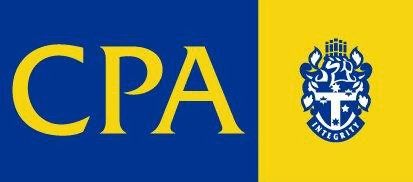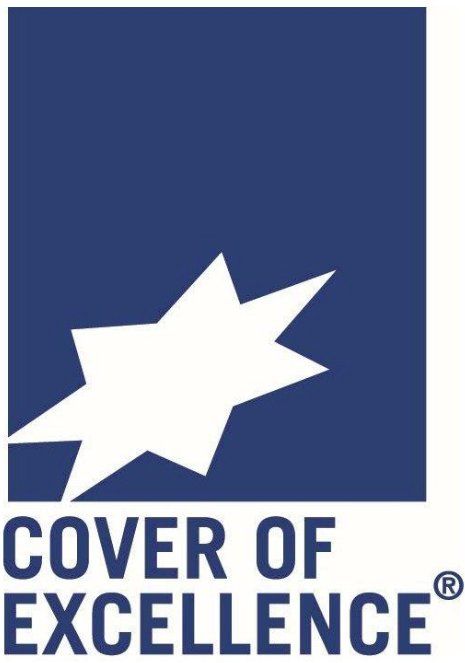

Hot Topics 🔥
Dddmsmssjsjsb
Latest news
14th of June 2022
Director ID applications now available
Company directors can now apply for their new Director identification numbers (director ID).
The director ID is a unique 15-digit identifier that will stay with a director for life.
Key dates are:
• individuals who became a director on or before 31 October 2021 - must apply by 30 November 2022
• individuals who become a director between 1 November 2021 and 4 April 2022 - must apply within 28 days of appointment, and
• individuals who become a director from 5 April 2022 onwards - must apply before appointment.
• individuals who become a director between 1 November 2021 and 4 April 2022 - must apply within 28 days of appointment, and
• individuals who become a director from 5 April 2022 onwards - must apply before appointment.
To apply, directors can log into ABRS online using the myGovID app and online application is likely to be the fastest channel, with director IDs issued instantly. It is free to apply, and available to directors within Australia and overseas. Applications are available by phone and by paper, for those who need it.
Cancelling your GST registration
You or your registered tax or BAS agent must cancel your registration within 21 days of selling or closing your business.
You must also cancel your GST registration within 21 days of changing your business structure – such as from a partnership to a company, unless the old entity carries on another business.
You can choose to cancel your GST registration if your GST turnover is below the threshold for compulsory registration, unless you:
- are a taxi driver (including ride-sourcing)
- represent an incapacitated entity – such as an individual who is bankrupt or a company in liquidation and that entity is registered (or required to be registered) for GST
- are an Australian resident who acts as an agent for a non-resident that is registered (or required to be registered) for GST.
ATO zeroes in on lifestyle assets
The Tax Office has now extended its lifestyle assets data-matching program for the 2020-21 financial year through to 2022-2023, allowing it to acquire insurance policy information for certain asset classes
Motor vehicles of values $65 000, marine vessels above $100 000, thoroughbred horses over $65 000, fine art over $100 000 and aircrafts over $150 000, will fall within the ATO's data collection scope.
The data-matching program, will give the ATO oversight over individuals who have been untruthfully declaring insufficient income in their tax returns despite accumulating assets. Taxpayers who dispose of assets and do not declare the revenue and capital gains on those disposals will also be identified.
Data collected by the ATO will be retained for five years, in cases where taxpayers fail to comply with these obligations even after being prompted, and reminded of them, escalation for prosecution action may be initiated.
Eligibility for NSW grant package (up to $10 000)
The NSW Government announced today a major new grants package to assist small businesses and people across NSW impacted by the current COVID-19 restrictions.
GRANTS
Businesses will be able to apply for grants through Service NSW from later in July and will need to show a decline in turnover across a minimum two-week period after 26 June 2021. The grants amounts are tiered based on decline in turnover as follows:
- $10,000 for a 70% decline
- $7,000 for a 50% decline
- $5,000 for a 30% decline
The grants are divided into 2 streams:
Small business COVID-19 Support Grant – available to businesses
and sole traders with a turnover of more than $75,000 per annum, and
that have an annual payroll below the payroll tax threshold of $1.2M at 1 July 2020, and have fewer than 20 full time equivalent employees, must
have an ABN registered in NSW or able to demonstrate they are physically located and primarily operating in NSW.
(Full criteria will be available in coming days on the Service NSW website)
Hospitality and Tourism COVID-19 Support Grant – available to tourism or hospitality businesses that have a turnover of more than $75,000 and annual Australian wages of less than $10M as at 1 July 2020.
Expanding Single Touch Payroll
This expansion will reduce the reporting burden for employers, who need to report information about their employees to multiple government agencies
The mandatory start date for STP Phase 2 reporting will be 1 January 2022.
ATO sets sights on "copy-paste" expense claims
The ATO has warned taxpayers that it will set its sights on ineligible work-related expense claims come tax time, issuing expense advice to those planning to make claims related to working from home, personal protective equipment, clothing and laundry, self-education, car and travel.
Particularly where someone’s deductions are much higher than others with a similar job and income.
The ATO will look closely at anyone with significant working-from-home expenses that maintains or increases their claims for things like car, travel or clothing expenses
2021/2022 Federal Budget
1. Increasing the Medicare levy low-income thresholds
2. Modernising the individual tax residency rules - "bright line test" a person who is physically present in Australia for 183 days or more in any income year will be an Australian tax resident
3. Reducing compliance costs for individuals claiming self-education expense deductions
4. Employee Share Schemes – removing ‘cessation of employment’ as a taxing point and reducing red tape
Changes affecting business taxpayers
1. Temporary full expensing extension
2. Temporary loss carry-back extension
3. Digital economy strategy (including self-assessing the effective life of intangible depreciating assets)
4. Debt recovery for small business
5. Tax treatment of qualifying storm and flood grants
Superannuation changes
1. Removing the work test for voluntary contributions
2. Reducing the age limit for downsizer contributions
3. Removing the $450 per month threshold for Superannuation Guarantee (‘SG’) eligibility
4. Relaxing the residency requirements for Self-managed Superannuation Funds (‘SMSFs’)
5. Exiting legacy retirement products
6. Changes to the First Home Super Saver (‘FHSS’) scheme
- Increasing the maximum releasable amount to $50 000
- Changes to improve the operation of the scheme
Taxpayers urged to keep work-from-home records
It is important that individuals are aware of their entitlements under the ‘new normal’. The ATO has significantly simplified the process of claiming tax deductions related to working from home
The ATO's shortcut method allows taxpayers to claim a fixed rate of 80 cents an hour for all running expenses incurred as a result of working from home, as opposed to calculating costs for specific expenses.
To claim home office deductions using the shortcut method, individuals need to keep a record of actual hours worked at home, the shortcut method is not compulsory, and individuals can still claim based on actual expenses incurred. However, they would then have to comply with the necessary, and more complex, record-keeping requirements.
Small business fees and charges rebate
The idea of this scheme is to support businesses in their recovery from the impacts of Covid-19, to incentivise business growth by reducing the costs of running a business. The rebate will be available from
April 2021 until 11:59pm,
30 June 2022. Businesses can claim the rebate against invoices that were due and paid from
1 March 2021
Eligible businesses and not for profits can apply for a one-off rebate to the value of $1500, which can be drawn down on multiple times until the full value of $1500 is reached.
The rebate is provided in a form of credit, businesses can apply for the rebate through the service NSW website, demonstrating proof eligibility in line with criteria set out below;
Small businesses (including non-employing sole traders) and not-for-profit organisations are eligible for $1500 worth of rebates on government fees and charges if they:
- have total Australian wages below the NSW Government 2020-21 payroll tax threshold of $1.2 million
- have their own Australian Business Number (ABN) registered and/or are physically located and operating in New South Wales. Only one $1,500 rebate is available for a single ABN.
- are registered for goods and services tax (GST)
- have a turnover of at least $75,000 per year.
Not-for-profits are not subject to the GST requirement but must demonstrate they have a turnover of more than $75,000.
Business confidence returning
Business confidence, business conditions, capacity and capital expenditure are all up this month. The economic recovery is showing signs of strong momentum, although government support is tapering, businesses are increasingly confident the economy will continue to grow.
Notably, capacity utilisation and capital expenditure have each shown signs of pre-pandemic normalcy as they exceeded levels and long-run averages unseen since before COVID-19.
ATO revs Up As JobKeeper Set To End In March 2021
Accounting professionals are being advised to get their clients ready for an onslaught from the ATO as an end to JobKeeper is in sight. Since the pandemic began in early 2020, the ATO has paused its audit and compliance work in view of the stresses the business community has been suffering due to the economic downturn.
Kick-starting the productivity growth engine
Improving productivity itself is the answer to boosting the economy, specifically, productivity will be driven in areas like education and health. These are big areas of the economy, and they are enablers for the rest of the economy, other sectors include road pricing and energy policy. Consensus is growing that Australia will need to adapt, new productivity strategies are required to return to pre-pandemic levels of productivity and economic growth.
Temporary full expensing
To be or temporary full expensing, the depreciating asset must be:
- new or second-hand (if it is a second-hand asset, your aggregated turnover is below $50 million)
- first held by you at or after 7.30pm AEDT on 6 October 2020
- first used or installed ready for use by you for a taxable purpose (such as a business purpose) between 7.30pm AEDT on 6 October 2020 and 30 June 2022
Eligible assets do not include:
- assets allocated to a low-value pool or a software development pool
- certain primary production assets (water facilities, fencing, horticultural plants or fodder storage assets), unless you are a small business entity who chooses to apply the simplified depreciation rules to these assets
Buildings and other capital works for which you can deduct amounts under Division 43
assets that
- will never be located in Australia, or
- will not be used principally in Australia for the principal purpose of carrying on a business.
Effectively, assets used or installed ready for use from, 12 March 2020 to 30 June 2021, (providing the asset is purchased by 31 December 2020) costing more than $150 000 can be claimed upfront, notably there are exclusions for passenger vehicles where the limit is $57,581 for the 2019–20 income year and
$59,136 for the 2020–21 income year.


